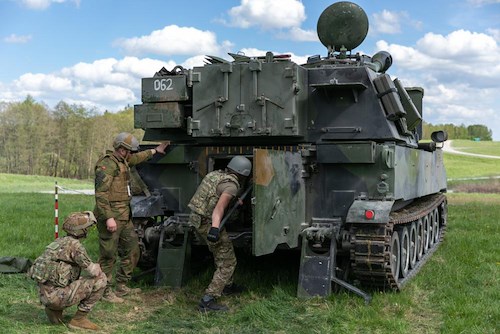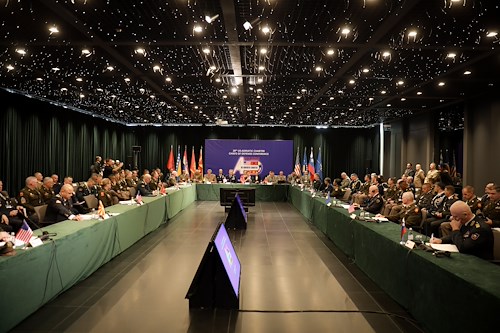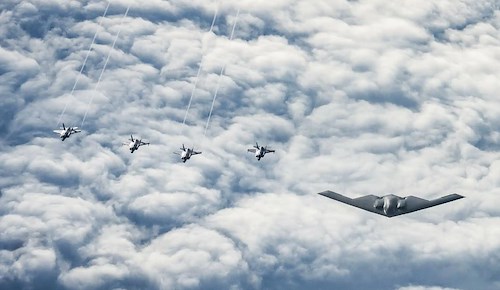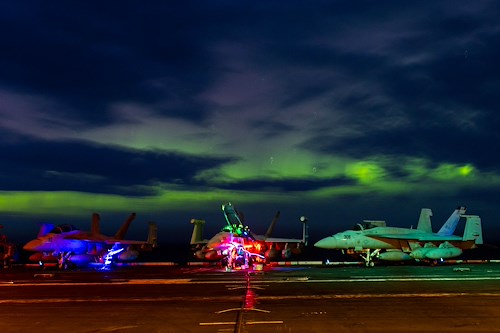Gallery contains 2 images
×
Photo 1 of 2
220512-Z-EG775-294C
Photo by: U.S. European Command Public Affairs
Photo 2 of 2
I Marine Expeditionary Force
U.S. Marine Corps M777 towed 155 mm howitzers are staged on the flight line prior to being loaded onto a U.S. Air Force C-17 Globemaster III aircraft at March Air Reserve Base, California, April 22, 2022. The howitzers are part of the United States’ efforts alongside allies and partners to identify and provide Ukraine with additional capabilities. (U.S. Marine Corps photo by Cpl. Austin Fraley)
Photo by: Cpl. Austin Fraley
No one doubts Ukraine's courage in combatting the Russian invasion of their country, but courage alone can only go so far.
Ukrainian service members need effective military capabilities at the right moments to defend their people.
That is the mission of the International Donor Coordination Cell at U.S. European Command.
The cell coordinates the efforts of donor nations from around the world to get Ukraine the military capabilities it needs. U.S. European Command hosts the cell, and it was cobbled together quickly, as the mismatched furniture and computer cables taped to the floor attest. In the early days of the Russian invasion, separate British and American teams were essentially doing the same mission. Officials combined the teams, and while British and American service members predominate, there are representatives from many countries in the secure facility. These include Ukrainian officers.
The cell mission is evolving. When Russia first threatened Ukraine, it was a "push" system — meaning donor nations were pushing anti-armor and anti-air systems like the Javelin and Stinger missiles and small arms ammunition into the country as quickly as possible. That has evolved into a "pull" system, where Ukraine is able to ask for military capabilities it needs to fight the Russian threat. The fight in Donbas today is fundamentally different than the fight that occurred around Kyiv in March and April. U.S. officials have said repeatedly that Ukraine's successful effort to drive the Russians away from Kyiv requires the anti-armor and anti-air systems. The fighting in the Donbas is an artillery struggle, and that requires far different systems.
Putting together the capabilities is another challenge the cell is surmounting. Donor countries may offer models of the same system, but the versions may be different. They may get a barrel from one donor country, match it with a chassis from another, and the ammunition from a third. A fourth or fifth donor country may provide the transportation for the system. The idea is to get a working system into the hands of the Ukrainian military as quickly as possible.
There are other hurdles that must be surmounted that don't immediately come to mind. The system dials, manuals and maintenance specifications must be translated from various languages to Ukrainian. There are many nodes in the transportation system and many modes of transport. There are obviously many different routes used. That's as specific as any member of the cell will get.
There is a limit to the Soviet-era weapons and ammunition that Ukrainian soldiers are using, and the military is transitioning to newer, NATO-compatible weapons systems. This involves training, and the cell is coordinating the training efforts in the West for Ukrainian soldiers. A cell official said the Ukrainian service members "are keen" on the training and want to finish it as soon as possible. "They don't even want to take tea breaks," the cell official said. "They want to finish the training and get back into the fight."











